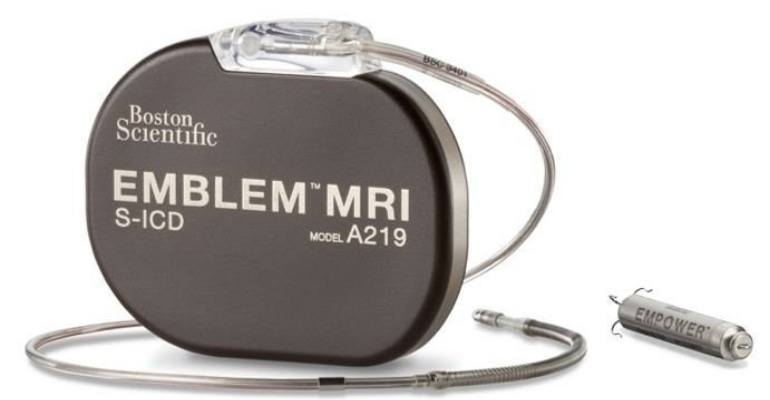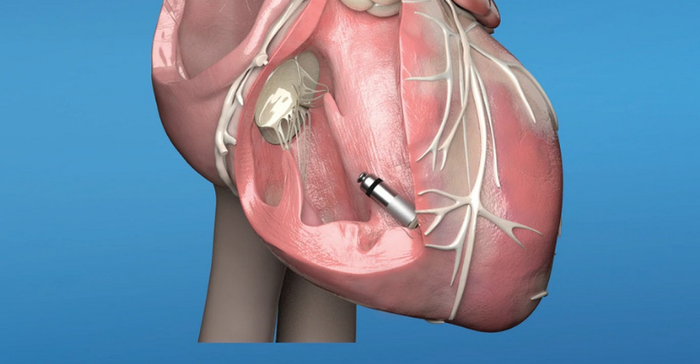Medtronic Faces Imminent Competition in Leadless Pacemaker Market
Abbott and Boston Scientific are both closing in on Medtronic with devices that, if approved, would compete directly with the Micra leadless pacemaker system.
December 6, 2021

Five years ago, FDA approved Medtronic's Micra, the first leadless pacemaker to reach the U.S. market. Touted as the world's smallest pacemaker, the Medtronic device represented a major innovative leap in pacemaker technology. The device also became a golden example of how medical device manufacturers continue to push the boundaries of what's possible in medtech miniaturization.
While Medtronic remains the only company with FDA approval for a leadless pacemaker, both Boston Scientific and Abbott are racing to bring a competing device to the U.S. market. The Cleveland Clinic implanted a leadless pacemaker defibrillator system, developed by Boston Scientific, in the world’s first two patients as part of a global clinical trial. And, just last month data from a global study evaluating Abbott's Aveir leadless pacemaker were published in the Journal of the American College of Cardiology: Clinical Electrophysiology, and Abbott said the data has also been submitted to FDA to support approval.
Pacemakers are surgically implanted medical devices that generate electrical impulses to treat slow pulse rates, and nearly 1 million people worldwide are implanted with pacemakers each year. The lead in a traditional single chamber pacemaker extends from the pacemaker generator, which is implanted under the skin near the collarbone, through a vein, and terminates in direct contact with the heart’s right ventricular wall. The lead delivers electric pulses from the generator to the right ventricle and helps coordinate heartbeat timing. A leadless pacemaker is designed to be self-contained and implanted directly in the right ventricle chamber of the heart, as shown in the image below.

In the Leadless II trial, safety and efficacy endpoints were analyzed in 200 patients implanted with Abbott's Aveir leadless pacemaker in 43 centers in the United States, Canada, and Europe. Patients were followed for six weeks. The Aveir leadless pacemaker was successfully implanted in 98% of patients. At the six-week mark, 96% of patients met the safety endpoint of no serious adverse effects, and 95.9% achieved the efficacy endpoint of acceptable therapy delivered to the patient. The company also noted that doctors were able to accurately position the device either the first time or with a single repositioning in 96% of clinical cases.
"As we developed the Aveir leadless pacemaker platform, our fundamental guiding principle was to design a device with extended battery life that could be retrievable, expandable to incorporate future innovation, and provide improved patient outcomes with a minimally-invasive implant procedure," said Randel Woodgrift, senior vice president of cardiac rhythm management at Abbott. "The results of the Leadless II study are a strong indicator that once the device is approved, the Aveir system can help physicians manage the care of patients with certain abnormal heart rhythms."
Boston Scientific's device has the potential to truly distinguish itself from the Medtronic Micra and the Abbott Aveir because it consists of two cardiac rhythm management (CRM) devices intended to work together to coordinate therapy: the Emblem MRI subcutaneous implantable defibrillator (S-ICD) system and the Empower modular pacing system (MPS). The combination device would be the first leadless pacemaker capable of delivering both bradycardia pacing support and antitachycardia pacing (ATP).
"Since the Empower MPS device can be delivered percutaneously via a minimally invasive approach without the use of leads, the mCRM system could preserve many of the benefits of the S-ICD system while offering an option for patients who subsequently develop a pacing requirement," said Kenneth Stein, MD, senior vice president and chief medical officer for rhythm management and global health policy at Boston Scientific. "The components of the system are designed to work in concert with each other, regardless of when implanted, giving physicians the ability to provide personalized patient care today while keeping options open in the future."
The prospective, non-randomized MODULAR ATP clinical trial is expected to enroll up to 300 patients at up to 50 centers in the United States, Canada, and Europe. Patients enrolled in the trial will include those who are guideline-indicated for an ICD or who already have an Emblem or Emblem MRI S-ICD system implanted. The trial will evaluate the system- and procedure-related complication-free rate of the Empower MPS, the communication success between the Empower MPS and the S-ICD system, and adequate pacing capture thresholds of the Empower MPS.
FDA flags rare (but serious) complication risk associated with leadless pacemaker systems
FDA recently flagged the risk of major complications if cardiac perforation occurs during leadless pacemaker implantation. Although cardiac perforation is a rare complication (occurring in roughly 1% of cases) of any pacemaker implant procedure, real-world data suggests that the risk of major complications following cardiac perforation may be higher in patients who receive a leadless pacing system versus a traditional transvenous pacemaker. The agency encouraged doctors to report leadless pacemaker cardiac perforations and related complications to the device manufacturer and FDA.
About the Author(s)
You May Also Like



.png?width=300&auto=webp&quality=80&disable=upscale)
